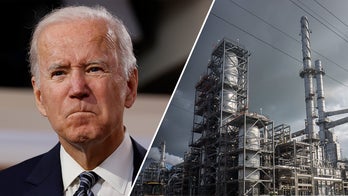The Supreme Court delivered a setback to the Environmental Protection Agency on Monday, placing limits on the sole Obama administration program already in place to deal with power plant and factory emissions of gases blamed for global warming.
The decision does not affect recent and highly controversial EPA proposals to set the first-ever national standards for new and existing power plants. One recent proposal would aim for a 30 percent emissions reduction by 2030.
Rather, at issue was a requirement that companies expanding industrial facilities or building new ones that would increase overall pollution must evaluate ways to reduce carbon emissions. The justices said Monday that the EPA lacks authority in some cases to force companies to do so.
However, the ruling could nevertheless be used to challenge other aspects of the EPA's effort to deal with global warming.
The rule in question applies when a company needs a permit to expand facilities or build new ones that would increase overall pollution.
Under Monday's ruling, EPA can continue to require permits for greenhouse gas emissions for those facilities that already have to obtain permits because they emit other pollutants that EPA has long regulated. But Justice Antonin Scalia, writing for the court's conservatives in the part of the ruling in which the justices split 5-4, said EPA could not require a permit solely on the basis of greenhouse gas emissions.
The program at issue is the first piece of EPA's attempt to reduce carbon output from large sources of pollution.
The utility industry, the U.S. Chamber of Commerce and 13 states led by Texas asked the court to rule that the EPA overstepped its authority by trying to regulate greenhouse gas emissions through the permitting program. The administration failed to get climate change legislation through Congress.
The outcome does preserve EPA's authority over facilities that already emit pollutants that the agency regulates other than greenhouse gases.
Scalia, writing for the court, said "EPA is getting almost everything it wanted in this case." Scalia said the agency wanted to regulate 86 percent of all greenhouse gases emitted from plants nationwide. The agency will be able to regulate 83 percent of the emissions under the ruling, Scalia said.
EPA said that, as of late March, 166 permits have been issued by state and federal regulators since 2011.
Permits have been issued to power plants, but also to plants that produce chemicals, cement, iron and steel, fertilizer, ceramics and ethanol. Oil refineries and municipal landfills also have obtained greenhouse gas permits since 2011, EPA said.
The Associated Press contributed to this report.




